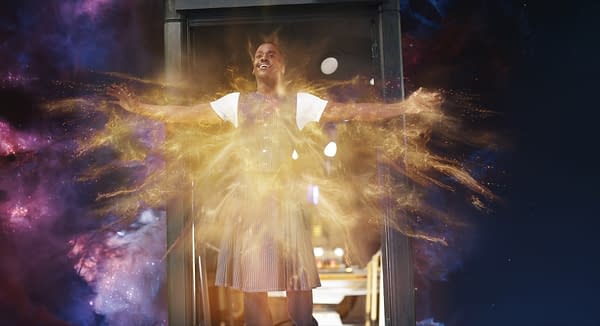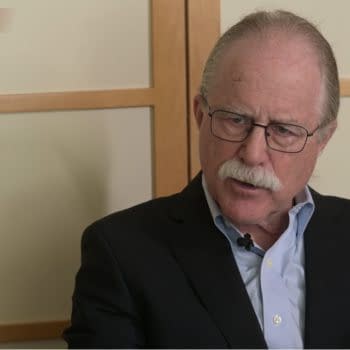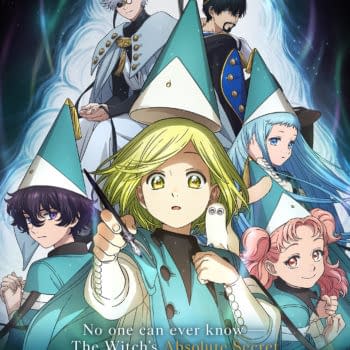Posted in: BBC, Doctor Who, TV | Tagged: doctor who
Doctor Who: Why's Everyone Obsessed with Ending the Doctor's Story?
Fans and writers have always been obsessed with Doctor Who ending, but the show and the character have always found ways to "regenerate."
Article Summary
- Doctor Who fans and writers are obsessed with the idea of the show's ending or cancellation.
- The show's history includes many "ends" for the Doctor, both official and alternative stories.
- Regeneration ensures Doctor Who is always both ending and beginning again, making it unique.
- Doctor Who's franchise value means it's unlikely to be cancelled, despite persistent speculation.
Fans and clickbait-chasers (like us!) keep harping on about whether Doctor Who has been placed on indefinite hiatus or cancelled, despite the BBC and Bad Wolf having to keep reassuring everyone that the series will be back, that it's not going away. On practical terms, as we've said many times, the series is too financially important to the BBC to kill in a time when franchises are the most valuable properties of all. We shouldn't be surprised that fans are currently obsessed with whether Doctor Who is cancelled or ending. It's a feature, not a bug, of the series and the character after all.

Ever since Doctor Who fandom reached a certain level of maturity in the wilderness years when the show was off the air between 1989 and 2005, fans who became professional writers began to think very seriously about the end of the Doctor's story. This seems to be a natural evolution in thinking about any popular mythical character's story. Ever since the 1980s, there have been many "official", ie, professionally published, stories about the ending of the stories of Superman, Batman, Wonder Woman, Daredevil, Wolverine, hell, any popular character, on top of the Doctor. The ending of a character's story is the summing up of their whole saga after all. It's the punchline, the whole point of the story up to that point.
The Many Ends of Doctor Who
Non-professional fans seem to be obsessed with catastrophising: "OH NOES! THE SHOW IS CANCELLED AND DED 4EVAH!" That's never going to happen until the show stops making the BBC tens of millions of pounds. What's interesting is that fans are obsessed with the literal end or cancellation of the TV series, while professional writers are interested in the conclusion of the Doctor's story.
Before Russell T Davies brought back the "canonical" version of Doctor Who on TV in 2005, there were already several "official" stories that featured the Doctor's end. It's funny that one of the first ends to the saga came from Steven Moffat in the form of Doctor Who: The Curse of Fatal Death, the Comic Relief spoof of the show that lovingly keeps the canon and tropes of the series intact as a comedy about the endless deaths of the Doctor and endless regenerations. There was Doctor Who: Death Comes to Time, an official BBC-produced audio drama originally serialised on BBC radio that features the final death of a god-like Seventh Doctor (Sylvester McCoy) at the end, which feels like an alternate universe story. Even after the series returned, series writer Paul Cornell, the most influential writer from the 1990s Virgin Novels era who also contributed to the series, wrote "The Last Doctor", a Christmas story on his blog in 2009 that featured a dying (undescribed) Doctor at the end of Time trying to find one last trick to save himself and a dying universe.
Even Steven Moffat admitted that when he introduced River Song in the two-part "Silence in the Library" story, she came fresh from seeing a future Doctor die in her arms, though he never put it in the script. When Chris Chibnall introduced "The Timeless Child" to the series lore, he may have hidden the end of The Doctor's story in where the Timeless Child came from. Where could the child have come from than at the end of Time and the final end of The Doctor, who would then fall back through Time to begin their story all over again as a blank slate, a timeless, eternal entity embodying both Space and Time and that only proves one thing:
Doctor Who is Always Ending and Beginning Again
This is what makes Doctor Who unique amongst pop culture heroes. The Doctor is always ending, and beginning again. Ever since regeneration was introduced to the show to keep it going, it also opened up an entire mythical layer to the character that makes them literally endless, constantly dying and always rebirthing. Every regeneration is an ending, every new Doctor is a new beginning to a new version of the same story, and that's what keeps everyone coming back. Doctor Who can never end, only stop, and as the BBC and Steven Moffat (who has proven to be ahead of the curve all this time) keep promising, that's always only temporary.












